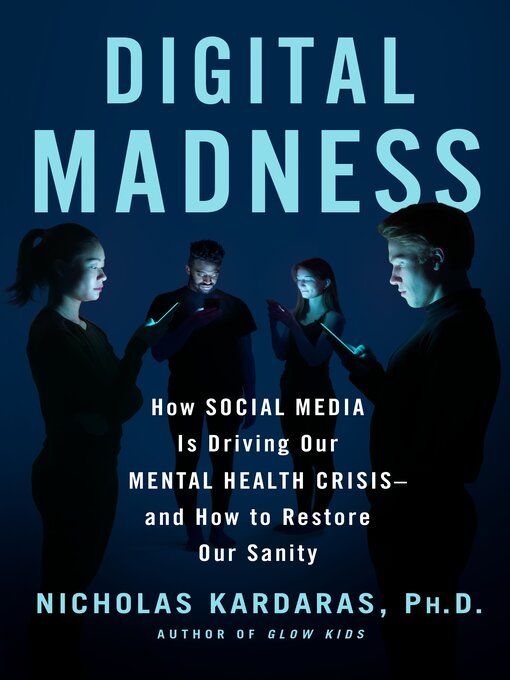From the author of the provocative and influential Glow Kids, Digital Madness explores how we've become mad for our devices as our devices are driving us mad, as revolutionary research reveals technology's damaging effect on mental illness and suicide rates—and offers a way out.
Dr. Nicholas Kardaras is at the forefront of psychologists sounding the alarm about the impact of excessive technology on younger brains. In Glow Kids, he described what screen time does to children, calling it "digital heroin". Now, in Digital Madness, Dr. Kardaras turns his attention to our teens and young adults and looks at the mental health impact of tech addiction and corrosive social media.
In Digital Madness, Dr. Kardaras answers the question of why young people's mental health is deteriorating as we become a more technologically advanced society. While enthralled with shiny devices and immersed in Instagram, TikTok, Twitter, Facebook and Snapchat, our young people are struggling with record rates of depression, loneliness, anxiety, overdoses and suicide. What's driving this mental health epidemic? Our immersion in toxic social media has created polarizing extremes of emotion and addictive dependency, while also acting as a toxic "digital social contagion", spreading a variety of psychiatric disorders.
The algorithm-fueled polarity of social media also shapes the brain's architecture into inherently pathological and reactive "black and white" thinking—toxic for politics and society, but also symptomatic of several mental disorders. Digital Madness also examines how the profit-driven titans of Big Tech have created our unhealthy tech-dependent lifestyle: sedentary, screen-staring, addicted, depressed, isolated and empty—all in the pursuit of increased engagement, data mining and monetization.
But there is a solution. Dr. Kardaras offers a path out of our crisis, using examples from classical philosophy that encourage resilience, critical thinking and the pursuit of sanity-sustaining purpose in people's lives. Digital Madness is a crucial book for parents, educators, therapists, public health professionals, and policymakers who are searching for ways to restore our young people's mental and physical health.
- African American Fiction
- Biography
- Business
- Christian Fiction
- Classics
- Comics
- Cooking & Food
- Fantasy
- Health & Fitness
- Historical Fiction
- History
- Horror
- Mystery
- See all ebooks collections
- African American Fiction
- Biography
- Business
- Christian Fiction
- Classics
- Fantasy
- Health & Fitness
- Historical Fiction
- History
- Horror
- Mystery
- Politics
- Religion & Spirituality
- See all audiobooks collections
- Most Popular Magazines
- Just Added
- Art & Architecture
- Business & Finance
- Cars & Motorcycles
- Celebrity & Influencers
- Cooking & Food
- Crafting & DIY
- Culture & Literature
- Fashion
- Health & Fitness
- Home & Garden
- Hunting & Fishing
- See all magazines collections


